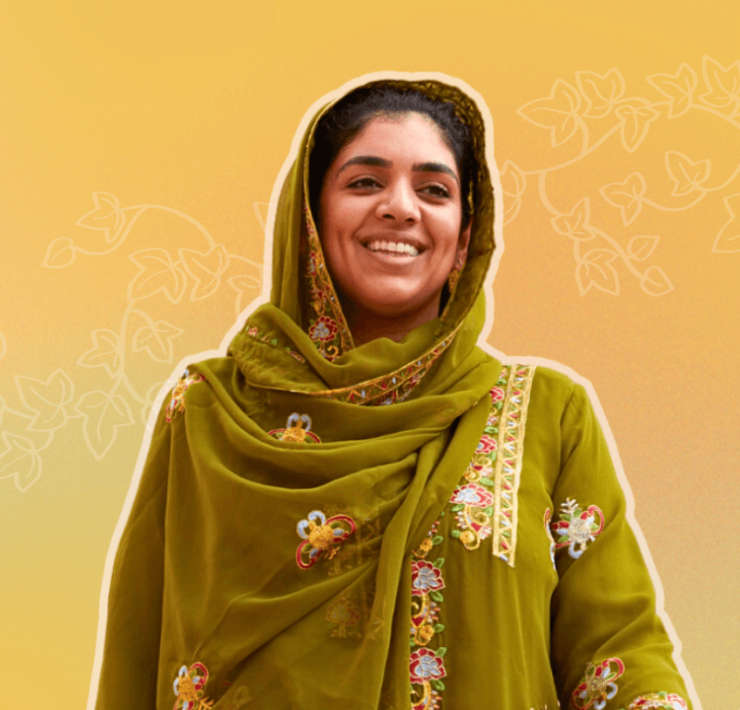Tucked away in the Middle Atlas Mountains of Morocco is Sefrou, a bustling town known for its annual cherry harvest. Lining the streets of Sefrou are women’s cooperatives of every variety – selling everything from kaftans to argan oil. In each cooperative, women work behind the scenes moving all of the necessary parts to run thriving businesses. Now prolific in the region, women’s cooperatives in Sefrou all started with one cooperative and one woman: the Cherry Buttons Women’s Cooperative and Amina Yabis.
In 2000, Amina Yabis got the idea to create a female-only cooperative in her hometown of Sefrou. Sefrou is known throughout Morocco for its djellaba buttons, which were first introduced to the town by its Sephardic Jewish residents, who taught the craft to their Muslim neighbors. Decades later, the women of Sefrou have continued to pass the craft through generations. In a nod to its origins and tradition, the buttons are still sewn in the shape of the Star of David on the top.
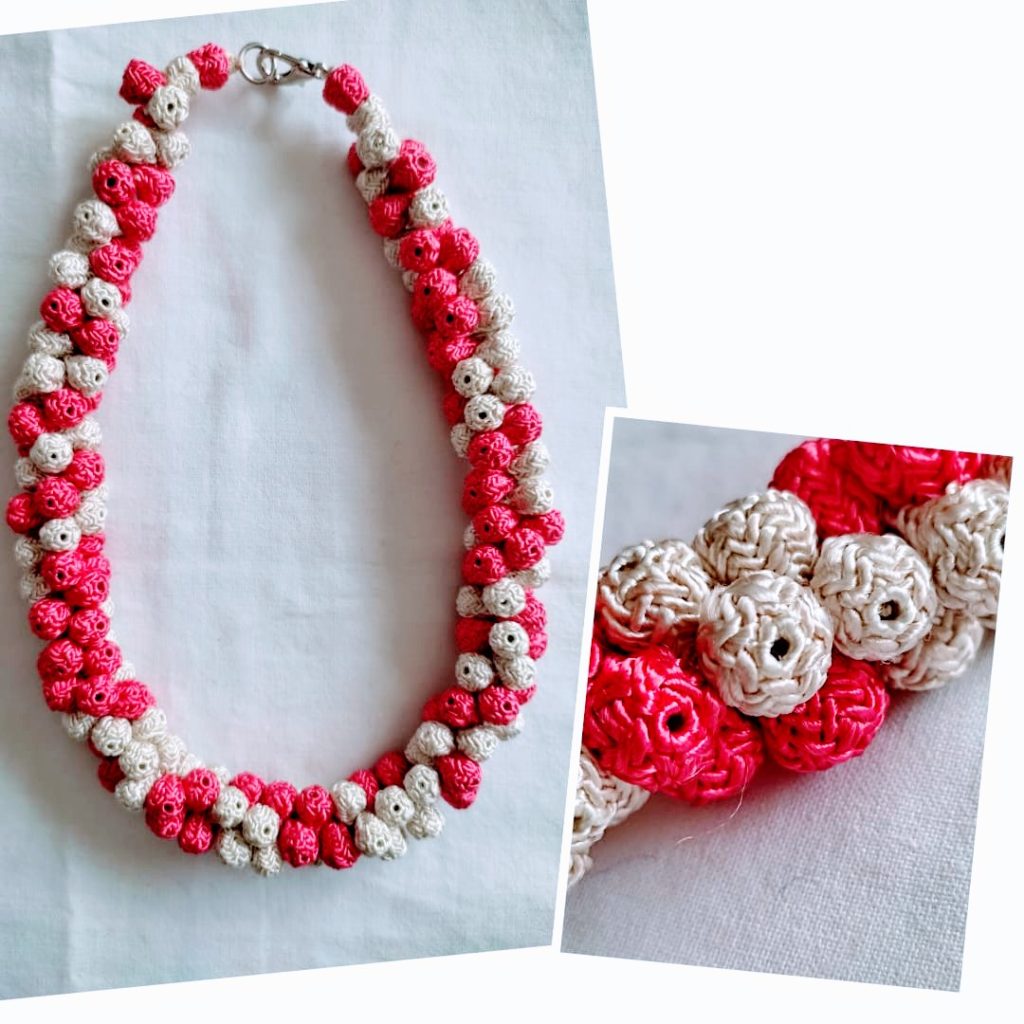
Throughout history, women in Sefrou largely relied on creating and selling djellaba buttons as a means of earning additional income for their families. However, the buttons tended to be purchased en masse by men who would pay the women a meagre wage and then sell the buttons at a much higher price throughout the country. Recognizing the rampant economic exploitation of these women’s time and skills, Amina decided to create a women’s only cooperative that would both create and sell the buttons. This way, not only could the women make buttons more efficiently by doing so as a collective, but they could exponentially increase their earnings and ensure that they were adequately paid for their work.
The focus of the cooperative has also changed over time. In a blend of tradition and innovation, Amina had the idea to create jewelry out of the buttons. Now, the cooperative largely sells necklaces, earrings, and bracelets crafted out of the various types of djellaba buttons.
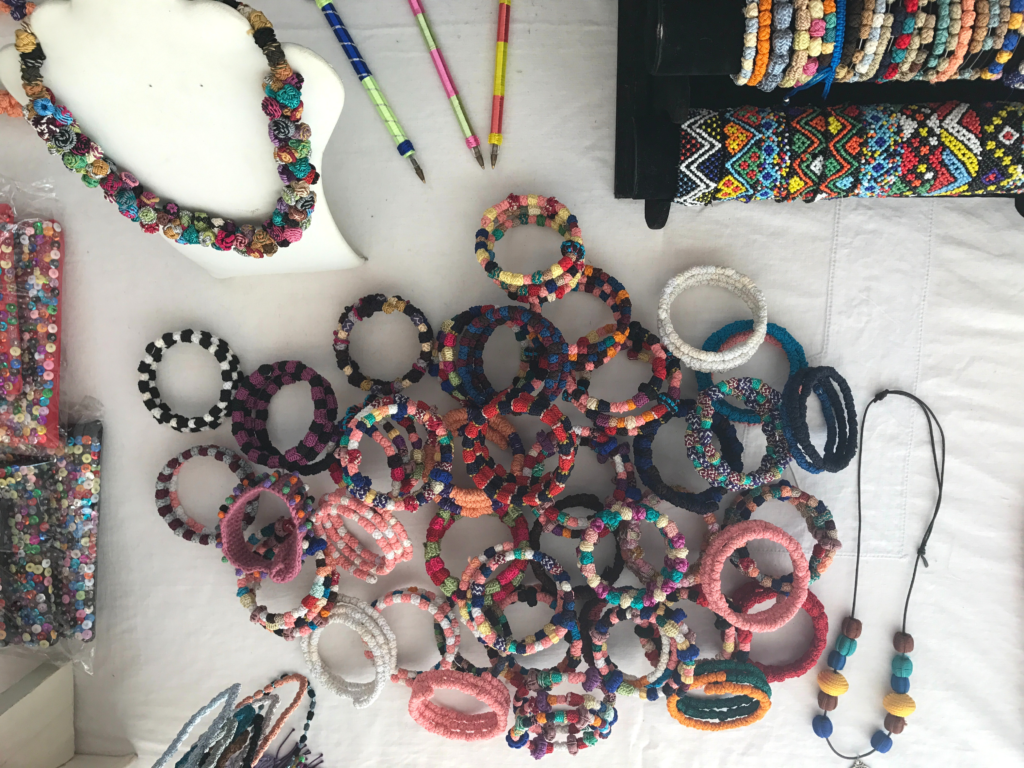
However, Amina didn’t want to stop at ensuring that the women of Sefrou were compensated for their work, she also wanted to prove that women played a foundational role in the social and economic well-being of Moroccan society. Twenty two years later, and she has accomplished just that. Amina’s cooperative consists of forty core members, with over 200 women working for the cooperative in total. Not only that, but throughout the years, Amina gained expertise in how to start and run small businesses, which has allowed her to support other women throughout Sefrou in their endeavors to start their own cooperatives. Women are now visible, active members of Sefrou’s economy.
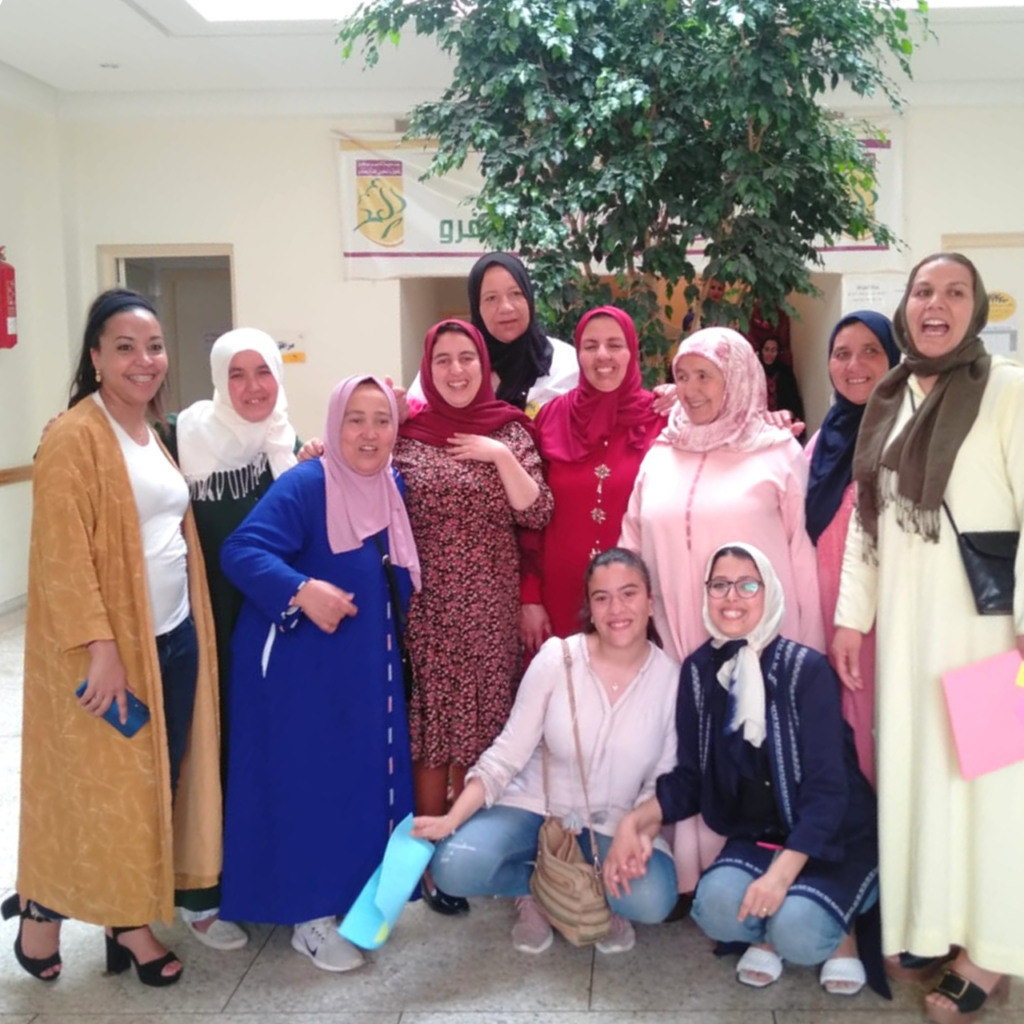
The Cherry Buttons Cooperative has continued to pave the way for women in Sefrou, particularly for women otherwise pushed to the margins of society. The cooperative employs women of all backgrounds – single mothers, divorced women, women without an education – giving them the opportunity to become economically empowered and financially self-sufficient. As Wafae Safar, Amina’s daughter-in-law and a leader at the cooperative, explains:
“our cooperative, and many others now, is giving these women the opportunity [to work] because, we are all the same, we are all women – we all need to work and raise our children.”
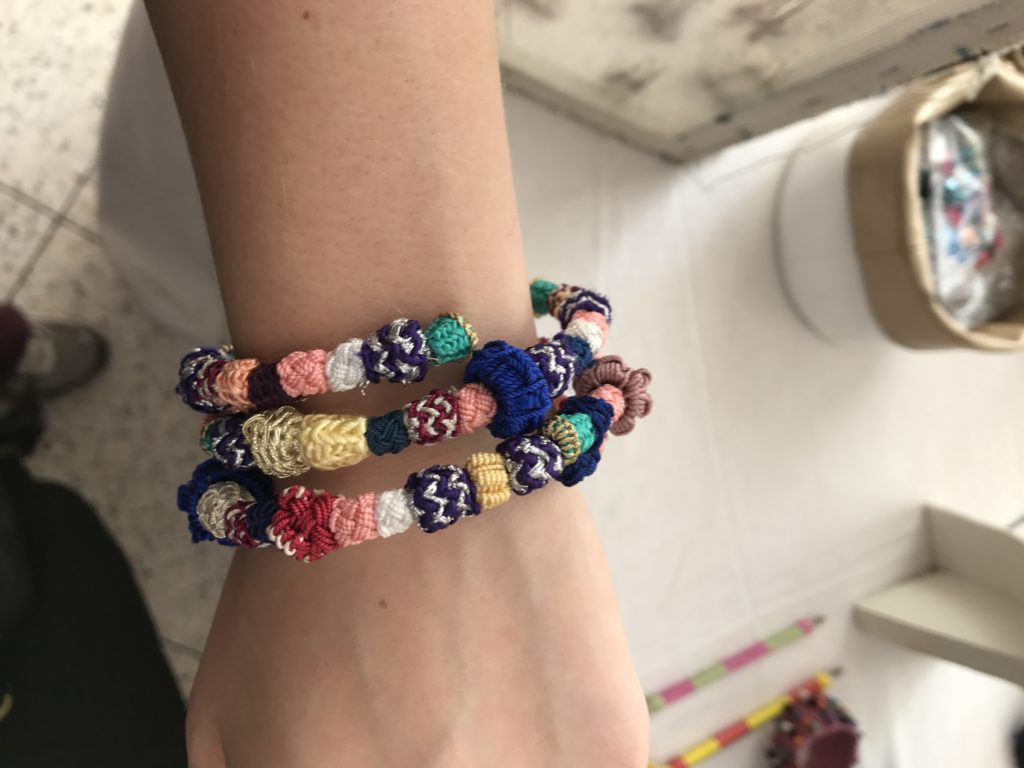
The journey has not been without its fair share of challenges, but thanks to the relentless commitment of the women, the cooperative has continued to expand. When it first started out, the women didn’t have a location they could work from and couldn’t find anywhere to rent. Finally, they were able to clear out a space in Amina’s basement where they could hold meetings and work collaboratively on products. As the first female-run cooperative in the town, they found that other women were often hesitant to join. Women-run businesses were a rarity in Sefrou at the time, and many women didn’t have the confidence to step forward and take part.
Over time, with some convincing from Amina, more and more women joined the cooperative and sales began to increase. The cooperative was eventually able to buy a storefront in Sefrou, which they used as a workshop and as a place to showcase their products. As time went on, the cooperative began to host groups of tourists in the workshop. Groups from all over Europe and the US began to come to listen to the story of the cooperative, watch how the women work, and purchase products to bring back home.
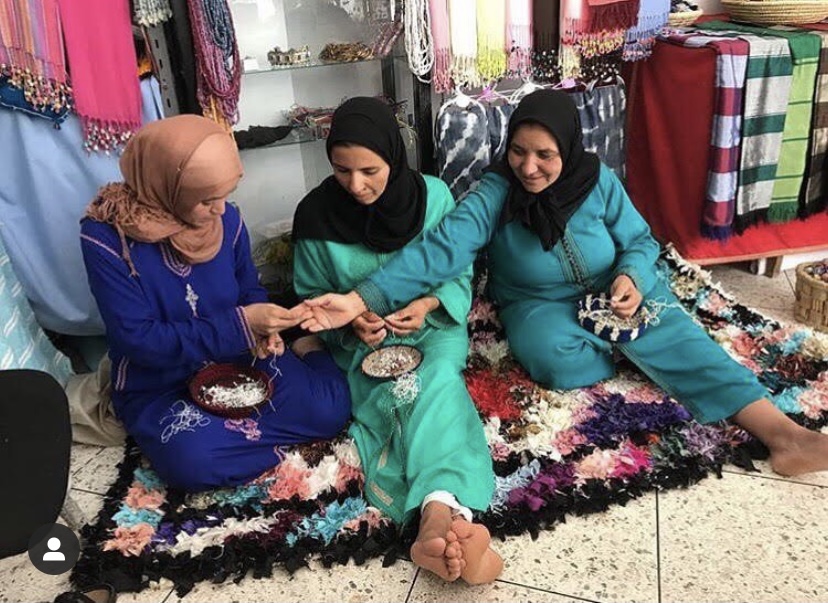
The cooperative has also expanded its reach beyond the borders of Morocco. In partnership with Cooperative Agay, which makes hand-embroidered clothing, the Cherry Buttons Cooperative produces jackets for Ibu Alliance, a shop in South Carolina that sells goods from female artisans around the world. Thanks to Ibu Alliance, the cooperative now has three industrial sewing machines, an office space where the women can focus on the business side of things, and a full-time employee focused on expanding the reach of cooperatives in the region. During the COVID-19 pandemic, Ibu also provided the women with personal protective equipment and equipment to make face masks for the community. Thanks to the cooperative’s partnership with Ibu, the women of the cooperative were able to help keep their community safe from the pandemic.
However, no matter how far-reaching the cooperative becomes, it’ll always have its roots in Sefrou. As Wafae explains:
“Our cooperative is very important because it is the first female cooperative in Sefrou – this is something that inspires pride for us. Sefrou’s citizens are all proud and thankful for what the cooperative could bring to the city. Our city is well-known now because of our cooperative. Amina has also helped a lot of women to create their own cooperatives and develop their own businesses… the cooperative is also important in our town because we support young women and encourage them to join and to be a part of something. Women of all backgrounds are encouraged to join our cooperative…we have a lot of strong women working with us.”
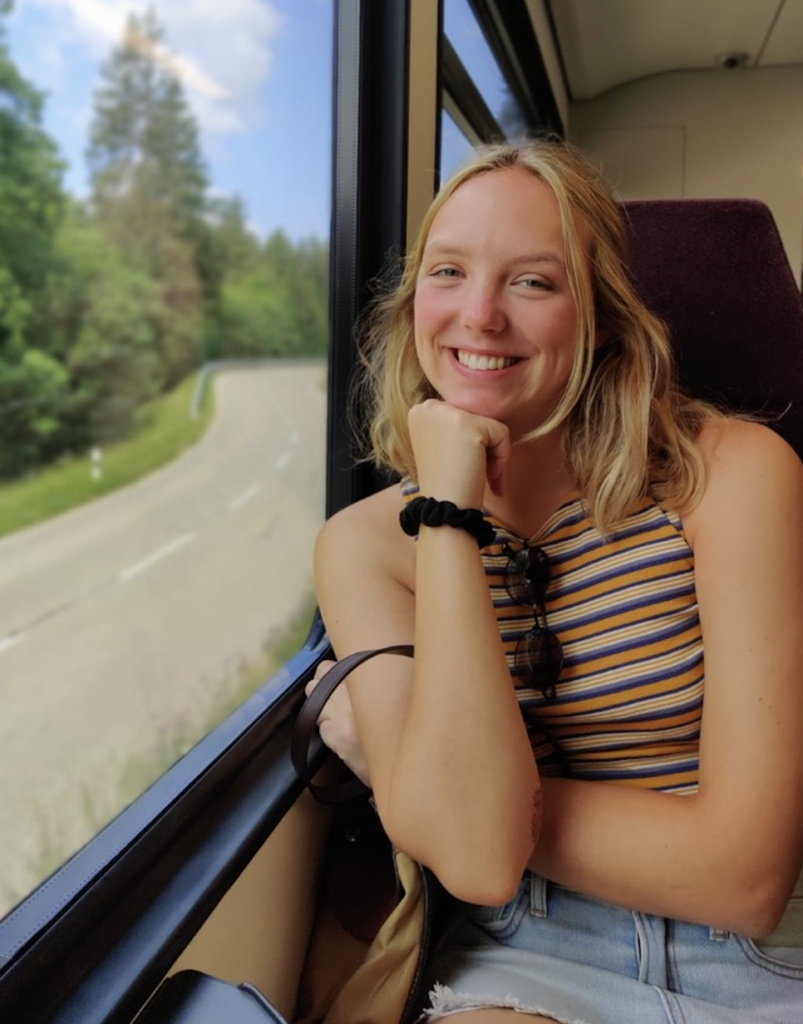
If you would like to learn more about the cooperative, please visit www.cherrybuttonscooperative.com
Kirsten Mullin is a Program Associate at InterAction, where she works on safeguarding issues. Prior to her time at InterAction, she spent time working at the Cherry Buttons Cooperative in Sefrou and École Canadienne de Tunis in Tunisia. She is passionate about North Africa, sexual and reproductive health, and current events. In her free time, you can find Kirsten attempting to paint watercolour scenes from her travels.



